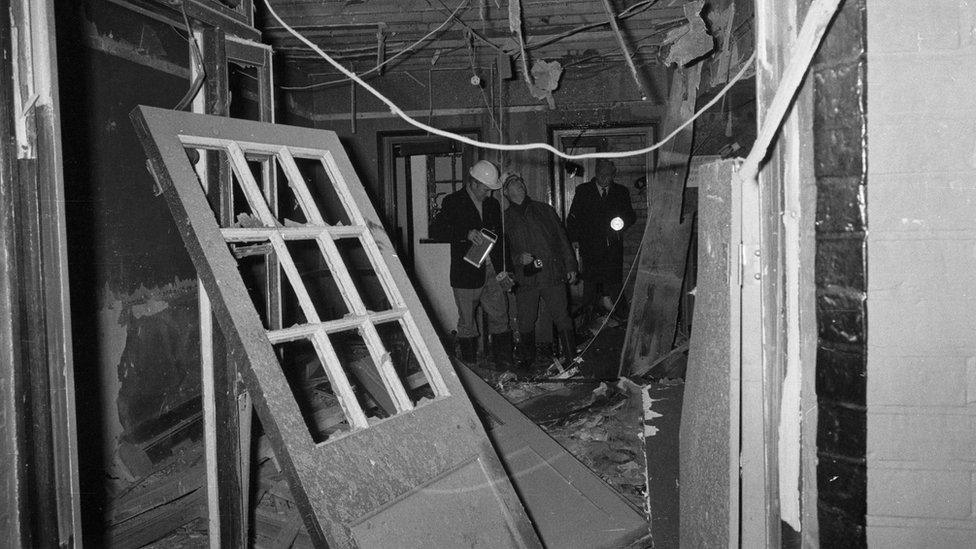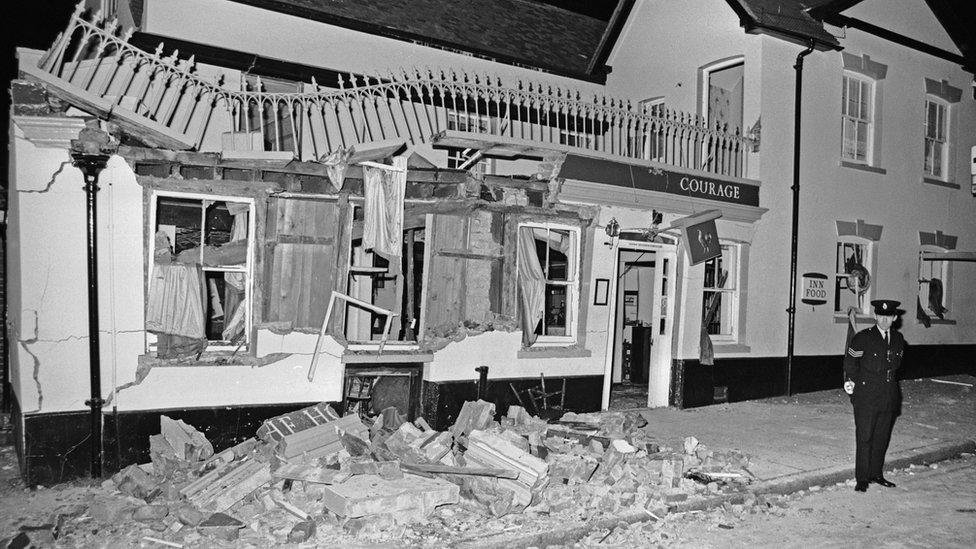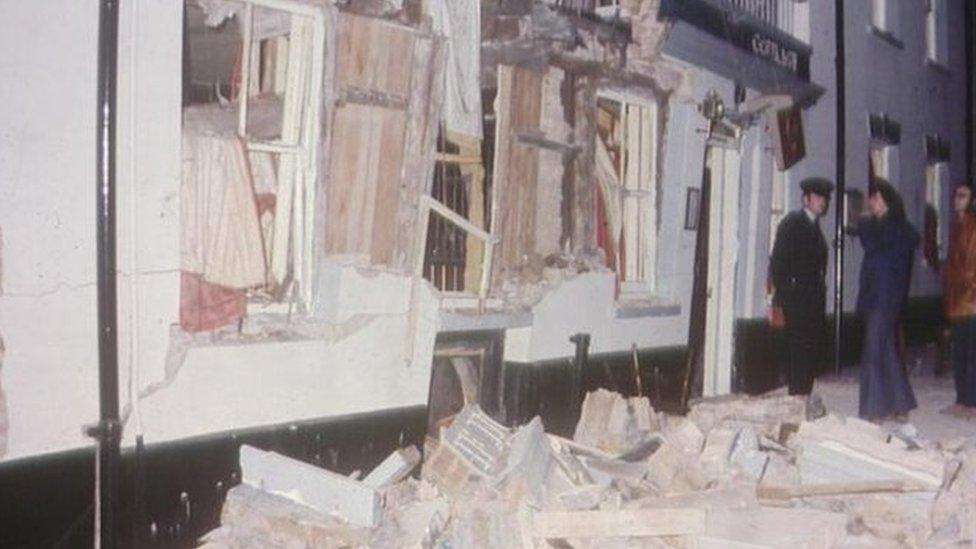Guildford pub bomb family in plea for government help
- Published

The bombs killed five people, injured 65 and saw 11 wrongly convicted
The family of a soldier killed in the Guildford pub bombings have asked the government to pay for their legal representation at an inquest, arguing "they should be in her corner".
Relatives of Ann Hamilton and their lawyers have been unable to attend hearings since legal aid was refused.
KRW Law said the family could be helped under arrangements for veterans in the Northern Ireland conflict.
The government has said it will respond to the family in due course.
Four soldiers and a civilian died and 65 were injured when two bombs exploded in the Surrey town on 5 October 1974. The case led to one of Britain's biggest miscarriages of justice when 11 people - the Guildford Four and Maguire Seven - were wrongly-convicted.
The IRA's Balcombe Street unit admitted the attacks but no-one else was prosecuted.
'Facts haven't come out'
Ann Hamilton's sister Cassandra Hamilton, speaking on behalf of the whole family, has hit out at the secrecy surrounding the case and the lack of support for relatives.
A massive disclosure process is under way as archives are reviewed ahead of a full inquest - a pre-inquest review last year heard some 700 classified files and 10,000 Surrey Police documents could be put before Surrey Coroner Richard Travers and a further hearing will take place on Wednesday.
But Ms Hamilton said all information should already be public.

(L-R) Soldiers Caroline Slater, 18, Ann Hamilton, 19, William Forsyth, 18, John Hunter, 17, and plasterer Paul Craig, 21 died in the blast
"There are many facts that haven't come out, including the timings that night and where the police were," she said.
"Everything should have been made public as soon as the Guildford Four were convicted. If they were so adamant it was them, why was nothing available to look at?"
She said the biggest questions that remained for the family were what actions were taken after the IRA's Balcombe Street gang claimed responsibility for the bombings and why nobody else was prosecuted after the Guildford Four were released.

The wrongly convicted Guildford Four served 15 years in jail
After the family's lawyer Christopher Stanley wrote to the Office for Veterans' Affairs, part of the Cabinet Office, to request financial support, Ms Hamilton said: "They should be in Ann's corner. She chose to go and put her life on the line for the country."
She said in the decades since the bombings, the state had paid for several trials and appeals along with an inquiry by Sir John May after the wrongful convictions - costs that included legal aid.
"My parents received between £600 and £700 after Ann died and they paid for the funeral. That's what my sister's life was worth," she said.
Ms Hamilton, whose mother died last year, said the whole extended family, including children, aunts and uncles, was still living with the impact of what happened.
"My own daughter was doing history and RE which covered Ireland," she said. "She came home crying.
"I said 'you really need to stay out of class if it's going to affect you'. Nobody else in her classroom would have been as close to what the teacher was saying."

More than 700 classified files have been retained by the government
She said the family's scrapbook of news cuttings contained a series of discrepancies and there was still not a true picture of what happened in Guildford that year.
"The only true picture is my sister went to a party - it was a friend's birthday - and she never came home. Obviously she was killed but we still don't know by whom."
Ms Hamilton's family had applied to the Legal Aid Agency for funding, arguing the coroner, two police forces and the Ministry of Defence would be legally represented at the inquest while they would not.
Mr Stanley said KRW Law had represented the family without payment for two years and it was not sustainable to continue representing them pro bono.
But he also said this would be the last time the family could "effectively participate in an independent investigation into her death".
A Government spokesperson said: "Our thoughts remain with the families of the victims of the Guildford pub bombings. We have received a letter on behalf of the Hamilton family and will respond in due course."
Related topics
- Published22 January 2020

- Published31 December 2019

- Published18 December 2019

- Published22 July 2019
